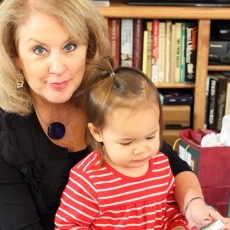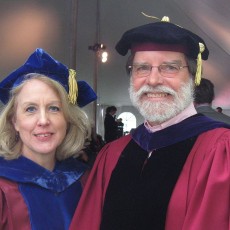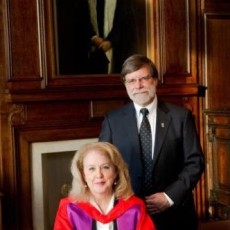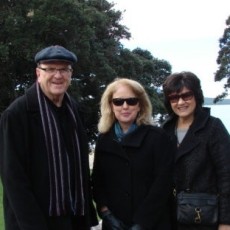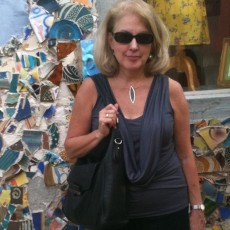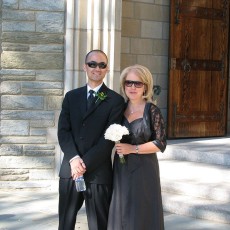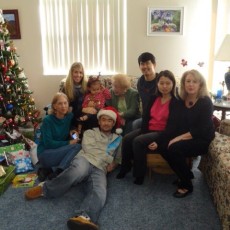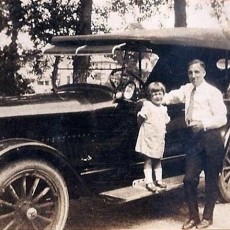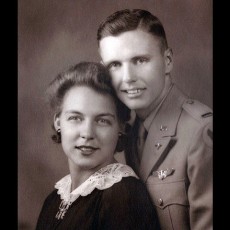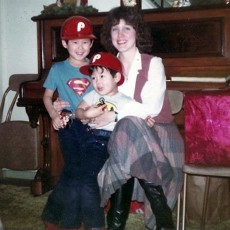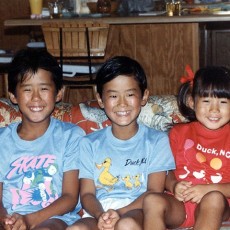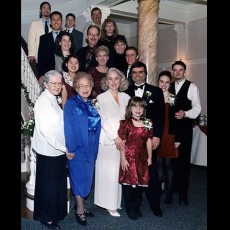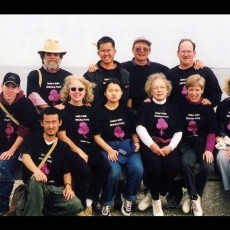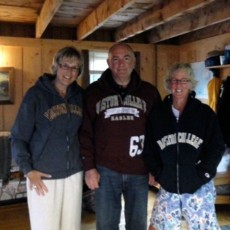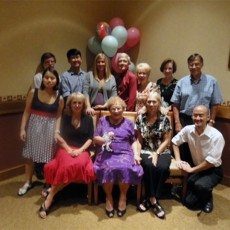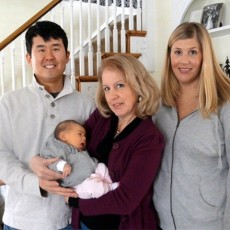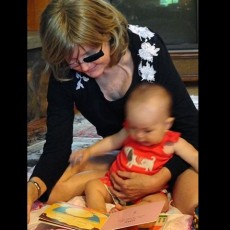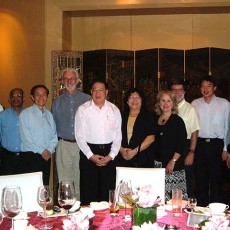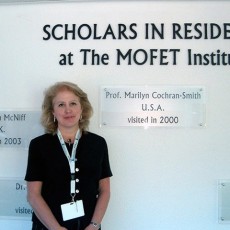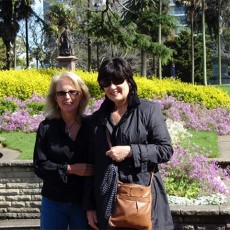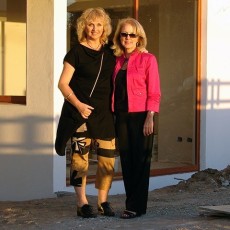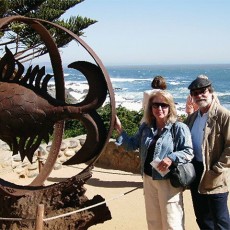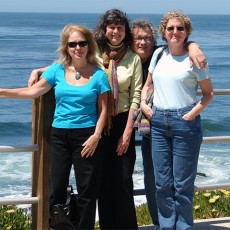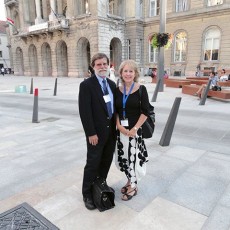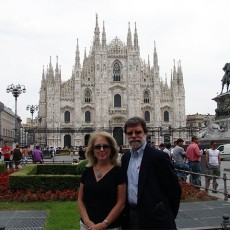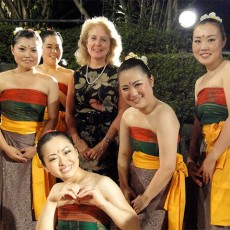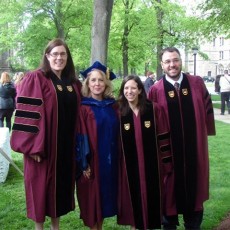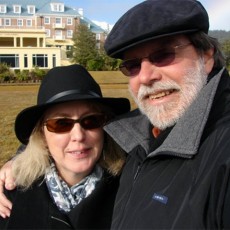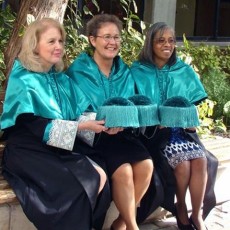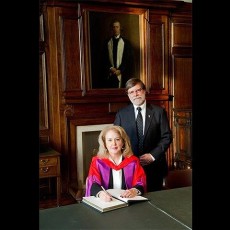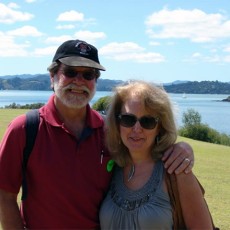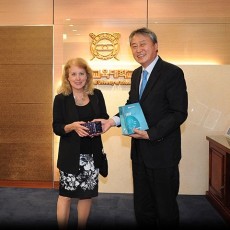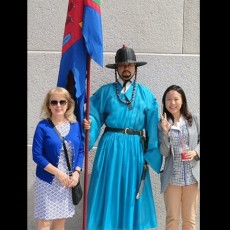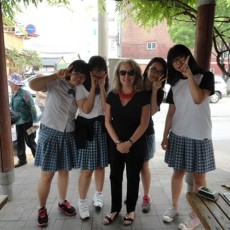Marilyn Cochran-Smith
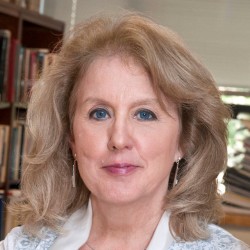
Marilyn Cochran-Smith is the Cawthorne Professor of Teacher Education for Urban Schools and the Director of the Doctoral Program in Curriculum and Instruction at the Lynch School of Education, Boston College. As a scholar and practitioner for 30 years, she is widely recognized around the world for her research and scholarship related to teaching, teacher education, and social justice. Elected to the National Academy of Education in 2009 and as past President of the American Educational Research Association, Cochran-Smith has also served as co-editor (with Susan Lytle) of the Teachers College Press series on Practitioner Inquiry. Reflecting her long-term research agenda related to theorizing and implementing in practice the notion of inquiry as a life-long stance on educational practice, including teaching, school leadership, and teacher education, the series, notably the only one of its kind in the world, now includes more than 45 books by practitioners and/or about practitioner research, including Inquiry as Stance: Practitioner Research for the Next Generation (Cochran-Smith & Lytle, 2009). Cochran-Smith and Lytle’s previous book on practitioner inquiry, Inside/Outside: Teacher Research and Knowledge, has been a Teachers College Press best-seller since it was first published in 1994. Both books are widely used as texts for graduate courses and professional development projects and programs in the U.S. and internationally. Her work at Boston College, one of eleven sites of the national teacher education reform initiative, “Teachers for a New Era,” including her service as Chair of the Evidence Team, has also produced numerous quantitative and qualitative assessments of the teacher education program and publications, which followed teachers longitudinally. As the recipient of many national awards including the American Association for Teacher Education’s David Imig Award for Distinguished Lifetime Achievement in Teacher Education (2010) and the American Educational Research Association’s Research to Practice Award (2007), Cochran-Smith has authored nine books as well as more than 175 articles, chapters, and editorials including the most recently published Policy and Politics in Teacher Education: International Perspectives (2009) and Handbook of Research on Teacher Education: Enduring Questions in Changing Contexts (3rd Edition, 2009).
For more information, visit Marilyn Cochran-Smith’s Website. To learn more about Marilyn Cochran-Smith from her family and friends, visit her Reflections. To view photographs from Marilyn Cochran-Smith’s personal collection, visit her Photo Gallery.
Curriculum Vitae Suggested readingsVisit the video below to watch a short overview of the interview with Marilyn Cochran-Smith. Otherwise, see all four of the full interviews with Marilyn Cochran-Smith below.
Video Interviews with Marilyn Cochran-Smith:
Growing up with her two sisters in Pennsylvania and later New Jersey, Dr. Marilyn Cochran-Smith enjoyed the loving support of her parents both of whom highly valued education and encouraged their daughters to attend college. While she was the first in her family to earn a post-secondary degree, Cochran-Smith had always loved reading, a passion that would guide and shape her career as a teacher and scholar. Also influenced by the social and political turbulence of the 1960s, she has focused much of her research on issues of equality and social justice. Watch this clip to learn more about Dr. Cochran-Smith’s experiences in the classroom and what she values most in teacher education.
Beginning her career in academia at her alma mater, the University of Pennsylvania, Dr. Marilyn Cochran-Smith cites her commitment to research on social justice issues among the reasons she later accepted a faculty position at Boston College. Also crediting her early interest in children’s literacy as a prelude to research and scholarship on teaching and teacher education, Cochran-Smith describes her dedication to developing and evaluating education programs that prepare teachers for the complexities and challenges of teaching in the highest-needs schools. Characterizing “teaching as a political activity,” she also advocates for the empowerment of new educators who she argues should challenge the status quo. In this clip, enjoy stories about Dr. Cochran-Smith from some of those who know her best-her colleagues and students.
Responding to common critiques of teacher education, Dr. Marilyn Cochran-Smith emphasizes the importance of recruiting the best teacher candidates, especially for placement in the highest-needs schools, and of placing pre-service teachers in classrooms with strong mentors. Also recognizing that teacher beliefs are an impetus to action, she explains that both should be studied as preparation for the teaching profession, noting that “practice isn’t just what teachers do in class…, it’s about how they think about what they do.” Citing the professionalization of teaching in conjunction with higher student academic performance in countries such as Korea, Singapore, and Finland, Cochran-Smith challenges the media efforts to blame and ultimately discredit teachers for the problems in education, especially those attributable in large part to other non-school factors. Watch this clip to hear more from Dr. Cochran-Smith about the “revolving door of new teachers” as well as the important role of inquiry as a worldview in education practice, policy, and research.
Valuing “clear writing about complicated things,” Dr. Marilyn Cochran-Smith reminds graduate students and others who aspire to contribute to educational research and scholarship that dense, jargon-laden writing is not necessary in order to communicate about complex issues. Citing her work on teacher research and inquiry, social justice, and current education policies among her most impactful, Cochran-Smith describes the need to raise public awareness by “writing something so powerful that people would finally see the insanity” in current policies that equate test scores to student learning and to the effectiveness of teachers and teacher education programs. Watch this clip to learn more from Dr. Cochran-Smith about her decision to pursue tenure in teacher education, against the advice of early colleagues, and the research needed most in the future.
Amrein-Beardsley, A. (2013, March 14). Inside the Academy video interviews with Dr. Marilyn Cochran-Smith [Video files]. Retrieved from /inside-the-academy/marilyn-cochran-smith
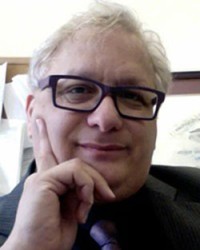
Dr. Alan Amtzis
Dr. Alan Amtzis recalls his experiences as a graduate student at Boston College, describing the influence of his mentor, dissertation chair, and friend, Dr. Marilyn Cochran-Smith, on his personal and professional life. Committed to preparing and supporting her doctoral students, Marilyn often scheduled very early morning phone conferences with Alan while he was writing his dissertation. Working on “a crazy 18-hour a day schedule for three months” to meet his defense deadline, Alan notes that he is lucky to have had Marilyn as his dissertation chair, especially when he was “deep in the thick of writing and needed a lot of advice,” adding that “her commitment to her doctoral students and her demanding standards often require some ‘outside-the-box’ advisement.” When serving as the Vice President of the American Educational Research Association (AERA), Marilyn coordinated a reception for all Division K students in her hotel suite during the annual convention. Scouring local markets with Alan for indigenous foods, cheeses, meats, baked goods, and snacks that were then smuggled past the hotel staff in suitcases or under coats, Marilyn personally greeted each graduate student at the door during the reception. One first-time attendee commented that “this was the nicest thing that had happened to her that day.” This illustrated “how Marilyn is able to combine personal and professional experiences in ways that people find inviting, encouraging, and authentic.” Also describing the many phases of her career, including literacy, multiculturalism, teacher research, and teacher education policy, Alan addresses one aspect that intersects with his own career. Having worked as a special education administrator and having previously focused largely on quantitative research in relation to traditional intervention studies, Alan explains that he “came to see that educational research, especially teacher research, could be an emotionally engaging and holistically inspiring experience.” Summarizing her immense contribution to educational research, Alan notes that Marilyn has “spent more than a generation of time providing a foundational argument for a philosophic, political, and historic ‘stance’ on teacher education, teacher development, and teacher research…influencing an incalculable number of teachers and teacher educators and encouraging them to find their voice and that their voice matters.”
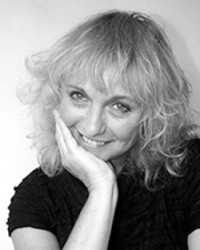
Dr. Lily Orland-Barack
Having met for the first time in Hong Kong ten years ago at the International Council on Education for Teaching (ICET) World Assembly, Dr. Lily Orland-Barack describes the ten-day experience she shared with her friend and colleague, Dr. Marilyn Cochran-Smith. Realizing they had much in common both in terms of their personal lives and professional trajectories, Lily and Marilyn have since “become ‘soul-mates’ through an incredible bonding-a bonding that transcends geographical space.” Although she lives in Israel and only sees her long-time friend once or twice per year, Lily describes Marilyn as “one of the people she trusts most in this universe, and whom she knows, will always, always be there for her-no matter how far they are from each other.” When they meet, Lily explains that “it takes no time to get into true, authentic talk about everything that really matters-family, work, concerns, fears, moments of joy and distress…[often] spending hours and hours together.” Reminiscing about their experience in Hong Kong, Lily describes the evacuation at the end of the conference due to a strong scale nine typhoon. As the final keynote speaker, Lily would have been unable to give her address. Determined to make sure that Lily had a chance to “be heard” as well, Marilyn invited all of the other invited speakers to gather in a hotel room with wall-to-wall windows to hear Lily deliver “the most unconventional and ‘cheerful’ keynote talk even given.” Lily also recalls happy memories of shopping trips with her friend in Israel, specifically visits to a boutique shop featuring Marilyn’s favorite designs. Lily always brings a few designs with her in her suitcase for Marilyn when they meet. Also describing her significant professional accomplishments, Lily notes that Marilyn’s “ground-breaking research has managed to produce a core, substantive body of knowledge that has grounded and led the scholarship of teacher education on a world-wide scale…. In particular, her work has foregrounded and conceptualized the conflicting educational and pedagogical ideologies that lie at the core of educating teachers in a diverse democratic society.” Characterizing Marilyn as “an exceptional human being, gifted with a brilliant intellect and a magic soul,” Lily adds that she is “sharp and soft; critical and sensitive; strong minded and tolerant; [and] caring, compassionate, and driven by a true belief that educational research must be educational.”
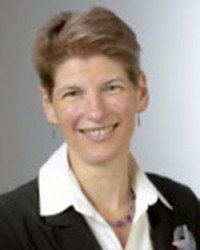
Dr. Kelly Demers
Describing her advisor and dissertation chair, Dr. Marilyn Cochran-Smith, as a “brilliant mentor, a wonderful colleague, and a good friend,” Dr. Kelly Demers treasures her experiences as a doctoral student at Boston College, Massachusetts. Having met Marilyn when working as a 6th grade teacher in an urban school district outside of Boston, Kelly “began to think of teaching as an intellectual enterprise and was looking for ways to delve more deeply into the art and practice of teaching.” Encouraged by her former cooperating teacher to contact Marilyn regarding her interest in possibly pursuing a doctoral degree, Kelly recalls enrolling in her first course taught by Marilyn, describing the experience as “one of the most eye-opening, challenging, and intellectually satisfying experiences that she had ever encountered.” Serving as Marilyn’s doctoral assistant for the next four years, Kelly “watched [her mentor] publish endless articles and books, travel all over the world, serve as the AERA [American Educational Research Association] President, and coach what seemed like dozens of doctoral students through proposal writing, articles, and dissertations,” adding that “no matter what she was doing-working with students, meeting with faculty, or preparing a talk-she was always the most intellectually focused and engaged person in the room.” Also having worked with her as an associate editor of the Handbook of Research on Teacher Education (2008), Kelly notes that as an assistant professor at St. Anselm’s College in Manchester, New Hampshire, “there isn’t a week that goes by that I don’t make reference to something I learned from Marilyn.” Kelly further describes Marilyn’s work around social justice teacher education as her most significant professional accomplishment as “embedded within this work is a deep respect for the intellect of teachers, an understanding of the social context in which teachers work, a belief that all children can perform at a high academic level, and an important critique of the current state of educational policy.” Explaining that Marilyn has helped her “make the transition from a curious classroom teacher to a competent and committed teacher educator,” Kelly describes her relationship with her mentor and friend as “one of the most transformative experiences in her personal and professional life.” Summarizing this sentiment, Kelly adds, “I would not be where I am today without her.”

Dr. Curt Dudley-Marling
Characterizing his close friend and colleague of more than 20 years, Dr. Marilyn Cochran-Smith, as “one of the most generous people he has ever known,” Dr. Curt Dudley-Marling explains that she is “generous to friends and colleagues alike.” Also sharing a humorous story about a trip to Massachusetts, Curt admits that neither he nor Marilyn is particularly good at directions. Scheduled to visit a university in the western region of the state as part of a research project, Larry explains that “they had gotten lost-AGAIN!” Marilyn “counseled patience as she was sure they would soon see a sign that would indicate their location.” Only minutes later, she was proven correct-the next sign said, “Welcome to Connecticut.” Also citing her pioneering work on teacher education as having helped “change how the field thinks about the relationship between teachers and research,” Curt notes that rather than viewing “teachers as ‘implementers’ of research conducted at distant universities,” Marilyn has worked closely with Dr. Susan Lytle to “reposition teachers as producers and partners in educational research.” While these and other professional accomplishments are significant, he adds that “she has touched more lives with her generosity.”
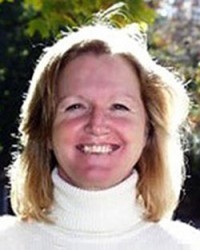
Dr. Kim Fries
Thanks to Dr. Alan Amtzis, this honorary reflection has been provided for Dr. Kim Fries, a very close personal and professional friend of Dr. Marilyn Cochran-Smith. As a former doctoral student at Boston College, Kim and Marilyn continued to work collaboratively for years as co-authors and to organize committees and projects, but first and foremost, they were friends and confidantes. Sadly, Kim passed away in 2011 after living with cancer for over 25 years. Kim, an exceptionally kind and thoughtful friend and teacher, is greatly missed by her family and friends as well as many professional communities.

Dr. Lexie Grudnoff
Dr. Lexie Grudnoff describes her friend and colleague, Dr. Marilyn Cochran-Smith, as “someone who has had a powerful influence on her professionally.” As a member of a small group of colleagues from the University of Auckland, New Zealand, Lexie has had the opportunity to work with Marilyn and her husband, Larry Ludlow, on an “ambitious new programme of research and practice related to teacher education.” Also citing Marilyn’s drive and passion in the project despite the challenges of working “out of sync” in terms of different time zones, seasons, and patterns to the academic year, Lexie explains that she has long admired her friend “as a teacher educator, scholar, researchers, and erudite writer and critic as well as for her steadfast commitment to practitioner perspectives and her scholar advocacy for practitioner research.” According to Lexie, Marilyn’s “insistence that prospective teachers should learn to ‘teach against the grain’ and ‘teach for social justice’ was an inspiration to her as a new teacher educator” adding that she “has challenged a prevalent view in education that research and practice are dichotomous…[and has] taught her that it is right and proper for teacher education research to connect with, and speak to practitioners.” Lexie also praises Marilyn for her intellectual fire-power and prodigious work ethic, recalling a recent visit to Auckland during which Marilyn suffered from the flu. Despite her illness, her “intellectual pace and relentless focus on identifying the challenges in their research project” left her colleagues “wilted under the strain of trying to keep up.” Describing her friend as “extremely stylish in manner and appearance-in the sense of being chic, elegant, and classy,” Lexie similarly notes that Marilyn’s writing “is beautiful; polished but not simplistic; with clear and compelling arguments.” As an excellent communicator, Marilyn’s oral presentations are lessons in style and persuasion as she “takes time and great care to craft and hone her ideas and how they will be transmitted with the aim of engaging and stimulating her listeners, always coming across as very well grounded in both her practical and academic knowledge.” Noting that Marilyn’s work has had a wide international reach, she has been asked by a range of countries from New Zealand, Ireland, Israel, Singapore and Scotland to contribute her expertise. Citing her “complex view of issues having to do with teaching and teacher education,” Lexis adds that her friend “eschews short term, quick fix solutions to issues of teacher quality and student achievement…, [instead] arguing for a more nuanced view of ‘achievement’ which relates to the broad goal of preparing students to live in and contribute to increasingly diverse democratic societies.”

Dr. Larry Ludlow
Describing his wife, Dr. Marilyn Cochran-Smith, as a “warm, caring, loving, and a sensitive woman, wife, and mother,” Dr. Larry Ludlow explains that “she is also the most intense professional person, certainly as an academic, that he has even known or heard of.” Larry notes that Marilyn’s commitment to “defending and promoting respect and dignity for teachers, teaching, and teacher education… [in addition] to promoting and demanding equity and access to quality education for all students everywhere…drives her work and thinking every day, every hour, every minute.” While these beliefs underlie her research, writing, teaching, conversation, and political actions, Larry adds that “she is not an ardent, shrill, firebrand in her various roles”-her credibility rests upon her experiences as a teacher in the schools and now as a “calm, yet passionate, voice of reason.” She can support her positions as she has read everything written related to teacher education and has the ability to synthesize and summarize her observations and arguments in such as way as to convince others, helping them “better understand and appreciate her positions on quality education-both for students and teachers.” Citing her presidential address for the American Educational Research Association (AERA) as her most satisfying personal and professional accomplishment, Larry recalls this event as an opportunity for her to showcase the profession of teacher education. Her “wonderful, standing ovation performance…[thrilled] family members seated in the front row who were [able to] see a side of her that [they] had heard about but never actually witnessed until then.” On a personal note, Larry explains that Marilyn often rises early in the morning and cannot wait to discuss the latest issue on which she is working, often asking for his opinion when he is still half asleep. He also describes her love of Diet Coke, noting that she consumes the soft drink “all day, every day, everywhere around the world, during all activities, [adding] that she probably knows more locations for buying Diet Coke in Boston, Dublin, San Juan, Chicago, Auckland, San Francisco, Singapore, Seattle, Jerusalem, Washington DC, and Glasgow than do Diet Coke suppliers.” In fact, hosts in foreign countries often have a ready supply when he and Marilyn check into hotels, and an aide even interrupted a speech once to present her with a brown bag holding her favorite beverage! Also noting that her selection to the National Academy of Education “represented an acknowledgement by her peers and mentors of her life time contribution to the profession of teacher education,” Larry enjoys hearing the testimony of those who come up to her in public to describe the influence of her work on their lives. Larry further describes his wife’s commitment to mentoring her graduate assistants by “providing them with opportunities to develop and excel in their interests while learning from her as a role model.” In addition, her willingness to provide professional services of support for Boston College’s Lynch School of Education as well as her department serves as an “example of the rich and satisfying life and contribution she has created for herself and those who have the privilege to know, work, and be with her.”

Dr. Susan L. Lytle
Dr. Susan L. Lytle and her friend and colleague, Dr. Marilyn Cochran-Smith, have “talked, thought through, written, wrestled with, critiqued, read, connected, and jointly constructed their ideas about practitioner inquiry as a [research] genre, movement, way of learning and knowing, and social critique” over the course of their 30 year friendship. Having written their first paper on the topic in 1987 and published their second book, Inquiry as Stance: Practitioner Research for the Next Generation in 2009, Susan and Marilyn “continue to imagine ways to bring the work of practitioners-teachers, principals, district leaders, college and university educators-to wider and [more] diverse audiences.” Having collaborated as co-authors, co-editors, and co-presenters over the past three decades as well, Susan notes that they “commingled the professional, the personal, and the political, [adding] that while they did not always agree, they brought their lived experiences and perspectives to bear on their own and also each other’s work and lives.” When asked to describe her friend’s most significant personal and professional accomplishment, Susan explains that “it is difficult to point to just one,” noting that Marilyn “has always been an extraordinary ‘reader of the field of teacher education’-the large, enduring and most challenging issues and their underlying assumptions and discourses.” Adding that her friend is “widely (and deeply) read in the research literature as well as [on] historical and current policy,” Susan notes that Marilyn has “written complex yet accessible analyses and new frameworks which have been extremely influential in the field and also of great help to new and emerging scholars.” Susan describes Marilyn’s career as “marked by her unusual combination of leadership and scholarship,” further explaining that the American Educational Research Association (AERA) and other professional organizations have benefited from “her insights and consistent support of change that enhances the learning and life chances of students, especially those for whom educational systems have often failed.” Characterizing her friend as “rigorous, courageous, present, collaborative, sometimes hilarious, relentless, curious, critical yet open to considering alternative perspectives, extremely articulate, thoughtful, [having an] impeccable memory, intense, [and] committed,” Susan summarizes Marilyn’s concern about “interrogating and making sense of the relationships of educational theory, research, policy, and practice as enacted in schools and university and always from an equity and social justice perspective.”
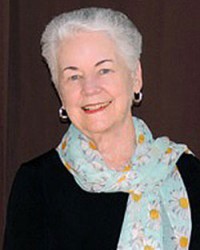
Moira Raftery
Moira Raftery recalls her experience working with Dr. Marilyn Cochran-Smith, then Editor of the Journal of Teacher Education, as “the beginning of a long and wonderful friendship with an amazing woman.” First hired to organize the flow of manuscripts for the journal, Moira describes the overwhelming increase in submissions as Marilyn began her tenure as editor, noting that over 400 submissions in a year was not unusual. Adding that Marilyn reviewed them all, Moira describes the journal office as so inundated with manuscripts that the stacks could have been used as chairs! While the journal required a three-year commitment, Marilyn served as editor for six years, after which she invited Moira to be her administrative assistant, a position she gladly accepted and has held ever since. Also noting Marilyn’s dedication to her students, Moira shares fond memories of the Annual Pot Luck Party, held for past and present doctoral students, their families, faculty, and staff by Marilyn and her husband Larry at their home every fall. About one hundred guests usually attend, each bringing a special dish to share. The tables, covered in bright orange tablecloths with pumpkin decorations, compliment the “totally international and delicious” cuisine. The weather for these events has always been perfect too-in fact, over the past 17 years that Marilyn and Larry have hosted the event, it has never rained! Explaining that Marilyn is also very close to her family, Moira describes the updated pictures of her family and grandchildren, proudly displayed on her door in Campion Hall. Moira adds that she “loves when there is time to sit and talk about their families and what is going on in their lives. Those are special times.” Characterizing Marilyn as “so smart and one of the most dedicated professionals she knows,” Moira adds that she is “not only her boss, but also her friend.”

Brad Smith
Dr. Marilyn Cochran-Smith’s oldest child, Brad Smith, describes his mother’s loving relationship with his daughter Riley. Describing her efforts to spend quality time with her only grandchild, Brad notes that every second of her time is dedicated to something and that “when she visits him and his family, she is 100% with them [and] when she is working, she is 100% Making a Difference.” Sharing humorous stories involving his mother, Brad explains that he received a phone call from her during his freshman year in college. Panicked as water from a broken pipe flooded the basement at home, she requested his immediate help. As he did not have a car, Brad spent more than two hours traveling using public transportation only to find the situation under control when he arrived and that there was no need for his help. Also sharing a family Christmas tradition, Brad describes a gift he received from his mother one year-foreign mustard from a country she had visited. In response to his sarcastic thanks, she now gives him foreign mustard as a gift every year for Christmas! Brad also describes her personal and professional achievements, noting that she accomplished much in her career while raising three successful children, none of whom “have any criminal records, are wanted by the IRS or the FBI, or have had to spend any significant amount of time in any sort of therapy.” He adds that her expectation that he clean the kitchen and wash the dishes as part of his childhood chores also proved useful in “wooing his wife.” Characterizing his mother as “loving, professional, dedicated, generous, and passionate,” Brad explains that “when he pictures his mom, he sees a woman who strives to ‘Make a Difference’ with her children and within her profession.”
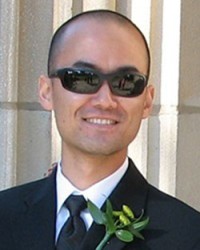
Michael Smith
Describing his mother, Dr. Marilyn Cochran-Smith, as his role model, Michael Smith shares happy and at times humorous stories from his childhood. Recalling a wardrobe dilemma involving a borrowed pair of dress pants, Michael had failed to mention the upcoming high school dance to his mother until a few hours before the event. Realizing that the dress pants he had borrowed from a friend were six inches too long, Michael planned to cut them to fit. His mother naturally found this solution unacceptable and proceeded to fold and safety pin each pant leg hem to a suitable length. To assuage Michael’s fear of ridicule from his peers, his mother then devised an alternative plan, folding the hems inside the pant legs and securing each with clear packaging tape! Describing another show of support from his mother, Michael recalls his desire to play the saxophone as a child. Extremely disappointed to learn that more than a dozen of other students had already selected that instrument, and as a result he would not be allowed to play, Michael describes his mother’s advocacy-she called both the teacher and principal to ensure that he had an opportunity to play the saxophone as well. He would continue to participate in the band until college, recognized for his talent and hard work as 1st chair saxophone during his senior year of high school. Also describing his mother’s personal and professional accomplishments, Michael notes that “her work inspires so many teachers to become more than they are, and to fight for educational equality and quality for everyone, all while caring for her family and her own elderly mother and learning new dinner recipes for her expanding family [as] she recently became a grandma.” Michael adds that while she “works hard and has earned everything she has, [she] still has compassion and empathy for those less fortunate.”

Dr. Ana Maria Villegas
When introduced to Dr. Marilyn Cochran-Smith more than 20 years ago by a mutual friend, Dr. Ana Maria Villegas had not anticipated the “solid friendship and deeply rewarding professional relationship” that would develop over the years. Having worked with Marilyn in several capacities as members of the American Educational Research Association (AERA) and most recently as co-authors of a chapter on teacher education research in the Handbook for Research on Teaching, Ana Maria explains that her work with Marilyn has allowed her to see up close some of her personal and professional qualities including “deeply felt convictions about issues of social justice, clear thinking, a strong sense of professionalism, boundless energy, collegial style, and a warm personality.” Ana Maria also describes her friend Marilyn as playful noting that “she thoroughly enjoys social situations, especially after a long day of meetings and intense work…[and that] they have had many enjoyable meals together in quite a few cities.” Ana Maria admires Marilyn’s commitment to mentoring new scholars as well, adding that she works diligently with her doctoral students to ensure that they are prepared to succeed in academic positions, frequently “involving them in her own research, giving them detailed feedback on their work, encouraging them to present their research at professional conferences, and co-authoring journal articles and book chapters with them.” Describing Marilyn as “a commanding voice in education and an eloquent advocate for social justice and democratic practices,” Ana Maria also cites the elevating impact of Marilyn’s scholarship on teachers’ intellectual work and experiential knowledge. Through her research, Marilyn has introduced new ways of looking at teaching and teacher preparation, often exposing disingenuous policies and practices that impede teaching for social justice.

